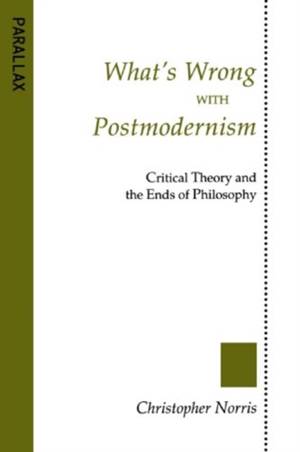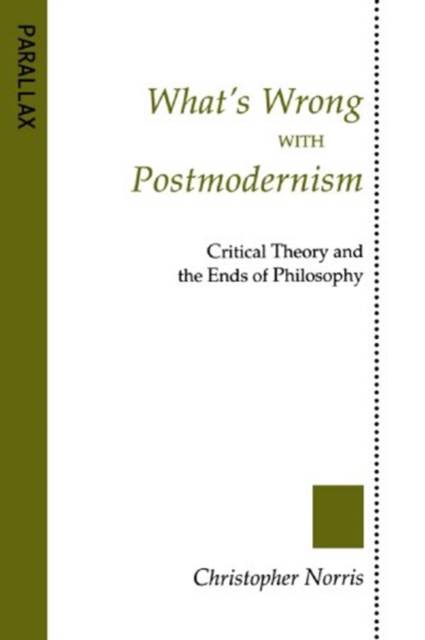
- Retrait gratuit dans votre magasin Club
- 7.000.000 titres dans notre catalogue
- Payer en toute sécurité
- Toujours un magasin près de chez vous
- Retrait gratuit dans votre magasin Club
- 7.000.0000 titres dans notre catalogue
- Payer en toute sécurité
- Toujours un magasin près de chez vous
Description
In What's Wrong with Postmodernism Norris critiques the "postmodern-pragmatist malaise" of Baudrillard, Fish, Rorty, and Lyotard. In contrast he finds a continuing critical impulse--an "enlightened or emancipatory interest"--in thinkers like Derrida, de Man, Bhaskar, and Habermas. Offering a provocative reassessment of Derrida's influence on modern thinking, Norris attempts to sever the tie between deconstruction and American literary critics who, he argues, favor endless, playful, polysemic interpretation at the expense of systematic argument.
As he explores leftist attempts to arrive at an accommodation with postmodernism, Norris addresses the politics of deconstruction, the issue of men in feminism, Habermas' quarrel with Derrida, narrative theory as a hermeneutic paradigm, musical aesthetics in relation to literary theory, and various aspects of postmodern debate. A chapter on Stanley Fish brings several of these topics together and offers a generalized statement on the function of current criticism.
Spécifications
Parties prenantes
- Auteur(s) :
- Editeur:
Contenu
- Nombre de pages :
- 296
- Langue:
- Anglais
- Collection :
Caractéristiques
- EAN:
- 9780801841378
- Date de parution :
- 21-08-98
- Format:
- Livre broché
- Format numérique:
- Trade paperback (VS)
- Dimensions :
- 150 mm x 228 mm
- Poids :
- 444 g

Les avis
Nous publions uniquement les avis qui respectent les conditions requises. Consultez nos conditions pour les avis.






